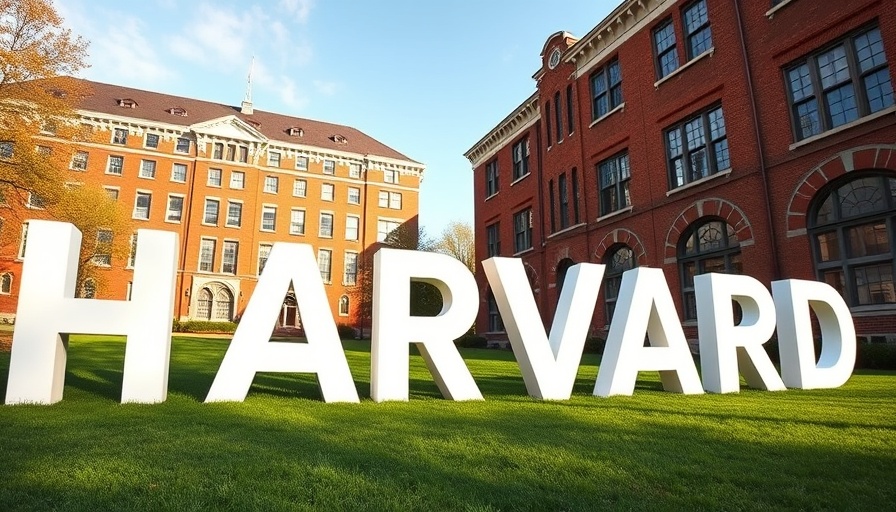
Redefining Government Funding and Its Impact on Education
As Harvard University enters the courtroom to challenge the recent cuts made by the Trump administration, it lays bare a sobering focal point: the critical role of government funding in advanced research and education. John H. Shaw, the university's vice provost for research, has described the situation vividly, illustrating the profound consequences of losing crucial support. His assertions highlight not only immediate adverse outcomes but also the long-term implications on science and academia.
Consequences of Funding Cuts: More Than Just Financial Loss
Shaw's declaration outlines a future that includes destroyed research programs and shuttered laboratories. This paints a bleak future for graduate students and postdoctoral researchers who may leave Harvard in search of better opportunities elsewhere. The collateral damage incurred through these funding cuts resonates beyond mere dollars; it encompasses lost time, shattered career aspirations, and an impediment to scientific progress.
The Broader Conversation: Public vs. Private Benefit
At the heart of Harvard's argument lies a broader conversation about the stewardship of taxpayer funds. Many Republicans have expressed skepticism about whether universities like Harvard handle public money effectively. They argue that mismanagement justifies cutting government support. However, Shaw counters this claim by suggesting that defunding proven research efforts is where true waste emerges.
A Steeper Toll on Research Fields
Harvard's lawsuit addresses specific losses—seasons of data that cannot be collected, and health studies that lose their relevance without continued funding. Dr. Shaw emphasizes that these disruptions create setbacks across entire research fields. In stark contrast to Republican arguments, the university's position is that maintaining financial support is essential for the continuity of learning and innovation.
The Ripple Effect: Impact on Global Research Landscape
With the academic elite engaged in robust discussions about funding, we must consider the impact cascades beyond Harvard. As one of the premier educational institutions globally, any funding loss at Harvard could indirectly affect research partnerships, collaborations, and knowledge sharing worldwide. The implications of underfunding could reverberate internationally, stunting growth in various fields of critical inquiry.
Moving Forward: A Call for Action
The situation calls for public discourse surrounding the value of federal investment in education and research. Shaw's statements suggest that cutting off funding is not just detrimental to Harvard, but also a wider disservice to society, one that thrives on knowledge transfer and innovation. The urgency for stakeholders, including parents, educators, and policymakers, to advocate for sustained support is now clearer than ever. Leveraging taxpayer dollars to spur groundbreaking research is ultimately a commitment to collective progress.
Conclusion
In summary, Harvard’s plea against the funding cuts should resonate with all invested in the future of education and societal advancement. It raises compelling arguments about how the loss of financial backing can stifle innovation and hinder the development of critical research fields. As we navigate these complex discussions, it becomes clear that engaging in advocacy for academic funding is vital. Let us stand behind institutions that strive not only for excellence in education but also for contributing positively to our global community.
 Add Row
Add Row  Add
Add 




 Add Row
Add Row  Add
Add 

Write A Comment